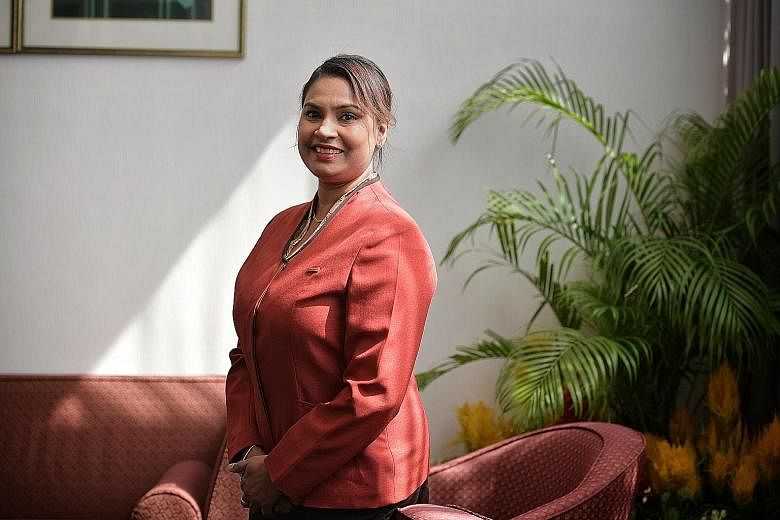The next time a person behaves suspiciously in public, a security officer might not be the one to approach him.
It might be a customer service officer or a cleaner who goes up to the person to check what he is up to.
This is what the Government wants to see as it reaches out to more groups through a programme that mobilises frontline staff to keep a lookout for security threats.
The Threat-Oriented Person Screening Integrated System (Topsis), rolled out in 2009, has trained frontline staff at checkpoints, including non-security personnel such as customer service officers.
They "act as eyes and ears on the ground", said Second Minister for Home Affairs and Manpower Josephine Teo.
"They are trained to detect tell-tale indicators so that we can subject suspicious persons to enhanced security checks," she said at a Topsis forum yesterday. "We now want to expand Topsis beyond our checkpoints."
The programme will be extended to staff at critical infrastructure such as power and water treatment plants, and buildings with high human traffic such as malls and theatres, she said.
"The people working at these locations can play an important role in security, by being alert to suspicious persons and activities," Mrs Teo added.
Topsis is conducted by the Centre for Protective Security Studies, under the Ministry of Home Affairs.
As of last December, it had conducted 1,270 training sessions for about 31,000 security and non-security checkpoint personnel.
Another 21,000 non-security employees at the checkpoints also attended basic briefings on how to identify and report suspicious people.
Mrs Teo noted that Topsis has "helped us achieve more comprehensive checks without adversely affecting the efficiency of immigration clearance".
Last March, customer service officer Mageswari Ramasamy, 56, who works at the transfer desk at Changi Airport, reported her suspicions about a traveller who was trying to enter the European Union through Singapore.
"He had a weird itinerary, and when we asked him about his purpose for the visit, he gave answers that were irrelevant to our questions," said Ms Mageswari.
She checked his travel documents and noticed something amiss. She informed the authorities, which confirmed her suspicions that the documents were fake.
Ms Mageswari said the traveller's body language and facial expressions aroused her suspicions - tips that she picked up during her annual training. She received an award for her vigilance at the Topsis event.
Another award recipient was Sentosa Development Corporation.
Since starting Topsis training for its staff three years ago, the firm has seen a 50 per cent increase in the number of staff reports on suspicious persons.
Its security director, Mr Lee Cheow Hiang, 48, said: "Even though all of them actually turned out to be false alarms, we are very heartened that our staff, whether they are in security or not, actually take pride in making sure that Sentosa remains safe."


